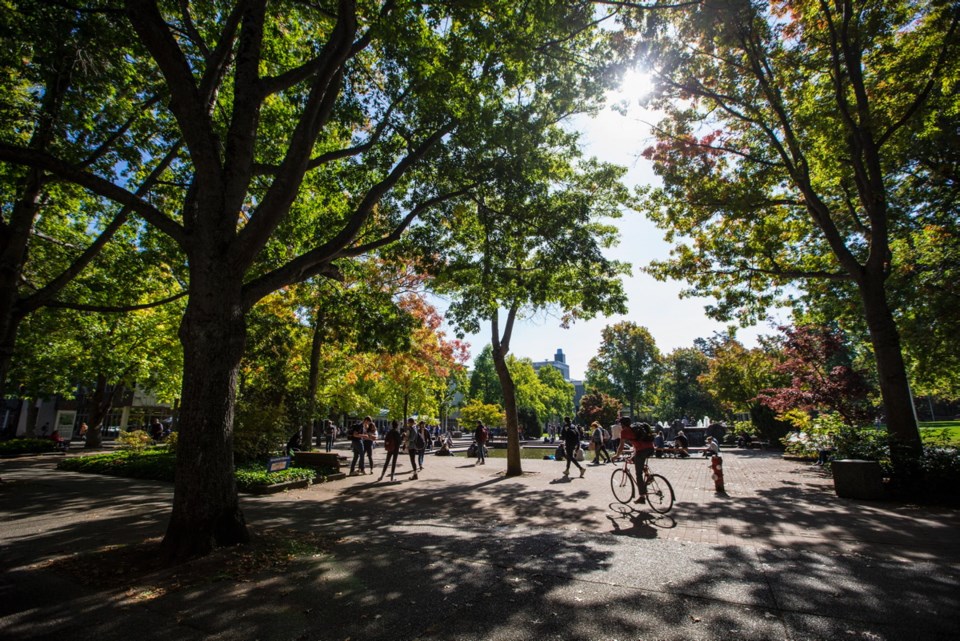A commentary by the leaders of the five on-campus unions at the University of Victoria. They are Sheryl Karras, chapter chair of the Professional Employees Association; Lynne Marks, president of the Faculty Association; Greg Melnechuk, president of CUPE Local 4163; Kirk Mercer, president of CUPE Local 951; and Byron Spiers, president CUPE Local 917.
COVID-19 has been the largest shock to the Canadian economy and society since the Great Depression and the post-secondary sector has been particularly hard hit due to unexpected declines in revenue, stalled research, and increased costs associated with the move to online teaching.
The federal government recently announced much needed financial supports for students, as summer jobs and co-op opportunities have evaporated. However, institutions of higher education also face difficult times as massive declines are expected in international student enrolment — a key source of funding for colleges and universities and a means to subsidize domestic students.
As part of the broader public sector, post-secondary institutions do not qualify for wage subsidies from the federal government. This means that they now face lower revenues and increased costs.
With no new funding being provided by either level of government, colleges and universities face difficult decisions around spending cuts in order to balance their budgets, as required by law. This is the opposite of what is needed in the higher education sector.
Not only will budget cuts, including possible layoffs, undercut B.C.’s economic recovery, but it will also leave post-secondary institutions unprepared for the surge in domestic enrolment that typically occurs during recessions as those who can’t find work seek the additional credentials they will need to compete in a dismal job market.
Colleges and universities not only provide education, they also provide social meaning and cohesion in very difficult times.
Having young, otherwise unemployed people in the post-secondary system enables them to remain socially integrated and reduces the risk of a populist backlash in response to the hardships of the pandemic — a backlash which we are already seeing in both Europe and the United States.
Historically, Canadian governments emerging out of major social disruptions such as the Second World War have made substantial investments in higher education as a crucial means to develop a more educated workforce, and thus a stronger economy.
While B.C. has increased its per capita enrolment in higher education over recent decades, it still lags behind Ontario and Quebec.
The current crisis provides an opportunity to invest in the further education sought by British Columbians and in this way build a stronger, more diversified economy that will be less vulnerable to future economic disruptions.
At this juncture, a strong government commitment to colleges and universities would ensure that our post-secondary institutions do not add to already high unemployment levels through potential layoffs.
Instead, it would allow them to play a major role in strengthening B.C.’s health sector, both through research and the training of much-needed health care workers. More generally, a robust post-secondary sector will be crucial to rebuild B.C.’s economy and to provide hope and opportunity for the many young people who have few other options.
We are well aware that there are many demands on government funding at this time.
Given expected near-term increases in domestic enrolments and the gradual resumption of international enrolments, colleges and universities should only need temporary support to get them through this crisis.
This funding could take the form of emergency transfers, government loans, or permission for institutions to borrow for the next few years.
Such support would reduce the pain that workers and students are facing and pay major dividends for the future of all British Columbians.



